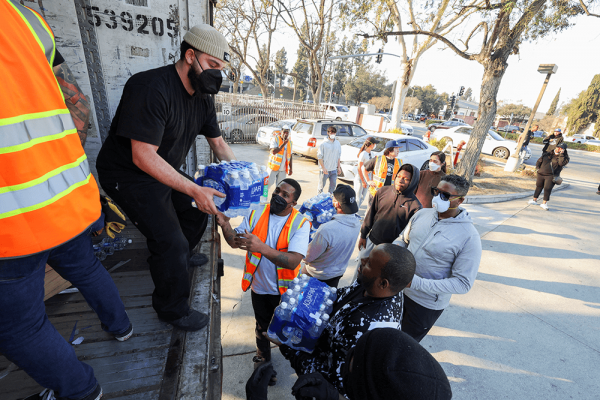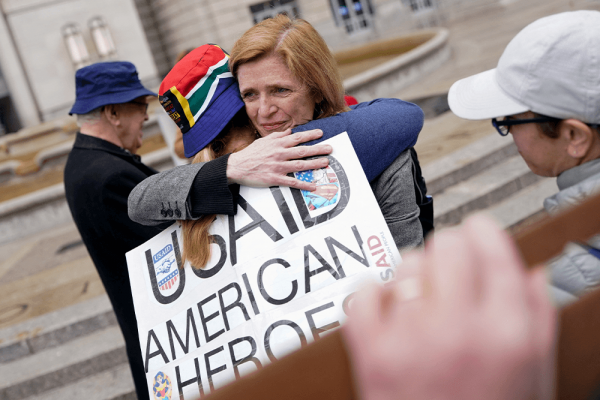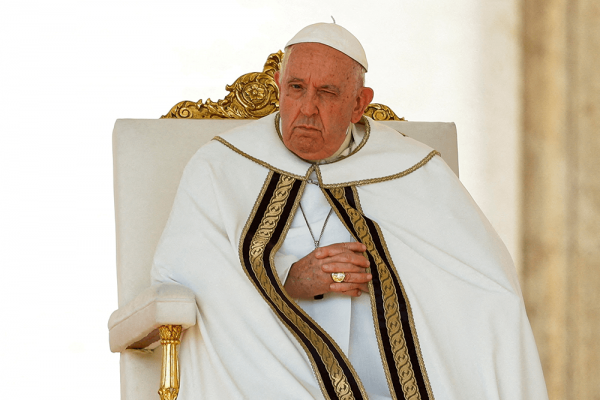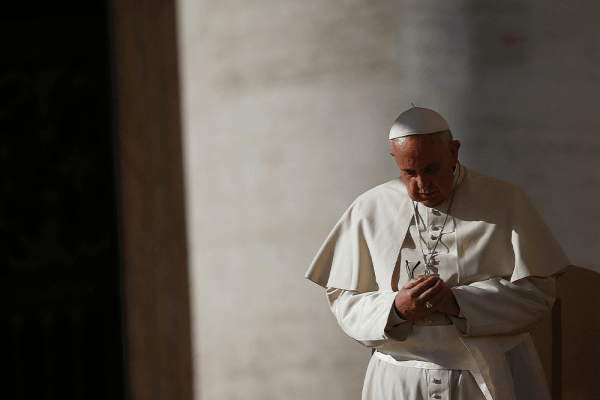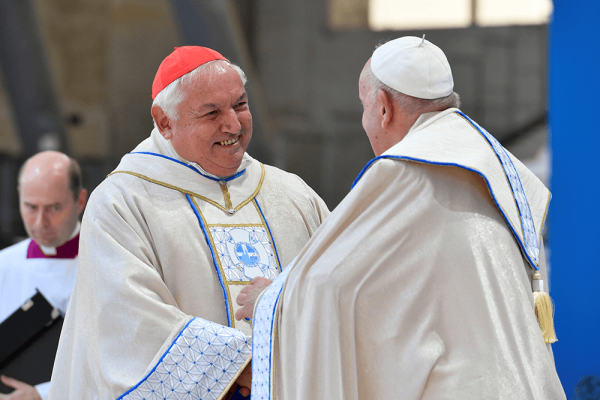Pastor Ben Squires did not have “baseless allegations of money laundering by Lutheran social service agencies” on his 2025 bingo card.
And yet, in the early hours of Sunday morning, Feb. 2, Squires found himself reading a flurry of social media posts about Mike Flynn’s unfounded accusations and billionaire Elon Musk’s promise that the Department of Government Efficiency would be “rapidly shutting down” supposedly “illegal payments” to a list of Lutheran groups including Global Refuge (formerly Lutheran Immigration and Refugee Services), Pacific Lutheran University, and Lutheran Social Services organizations in Florida, Wisconsin, and South Dakota.
Flynn’s post included screenshots of select Lutheran groups that receive such funds. It is still unclear how or why Flynn singled out these Lutheran groups in his post, or what prompted Musk to presume those payments were illegal.
Each year, billions of federal dollars go to faith-based nonprofits that provide a range of community services, such as housing support, refugee resettlement, or food assistance.
While Squires’ Lutheran Church Missouri Synod congregation in the Chicago village-suburb of Gurnee, Ill., does not receive federal funding nor work directly with Lutheran social service agencies, the posts were painful and shocking.
“These are services that vulnerable people in our congregation and community rely on,” he said. “To see them get attacked for no reason and for the funding to be frozen is really disheartening.”
But more troubling, Squires said, was how the posts represented an attack on the longstanding tradition of Christian community service and neighbor-care.
“Christians have always been doing charitable work, caring for the poor, caring for the dead,” he said. “That’s the DNA of the church, the values the church champions.
“Rather than attacking it or thinking that kind of work takes away from the gospel, why not celebrate that? I just don’t understand.”
Public-private partnerships a “catalyst for good”
For decades, a wide spectrum of faith-based nonprofits doing work in the U.S. and abroad have relied on government funding in addition to private donations and grants. In turn, the U.S. government has long assisted churches, religious groups, and faith-inspired charities to help Americans with food assistance, housing and services related to immigration, and refugee resettlement.
Beyond Lutherans and Catholic aid agencies, evangelical organizations like Samaritan’s Purse receive millions ($53.55 million in 2023) and nearly 45% of the ecumenical humanitarian aid organization World Vision’s $1.5 billion budget came from the U.S. federal government. Additionally, about 85% of the evangelical humanitarian organization World Relief’s budget came from government contracts.
Rick Santos, president and CEO of Church World Service, said the question should not be why so many faith-based nonprofits rely on government funding nor whether this compromises their religious mission. Instead, Santos said, people should be asking how to expand such public-private partnerships. CWS received over $186 million in government grants — about 85% of their income.
The reason faith-based groups and the federal government work together, Santos said, is because their missions often align. Government aid and relief work help address emergency needs, the worst effects of poverty, and contribute to the development and economic growth of communities at home and abroad. Whether it is helping achieve foreign policy goals, advance economic interests, or achieve domestic policy aspirations, government aid-giving is a political calculation, not necessarily a benevolent one. Nonetheless, faith-groups can help fulfill those goals — albeit for different reasons.
“Organizations see a gap in care for vulnerable communities and one of the ways to fill that gap in service is by working with the government and receiving federal funding,” he said.
Likewise, Santos said working with churches and religious organizations helps federal and state governments expand their ability to provide a better life for their citizens and residents.
250220-fedfunding3.png
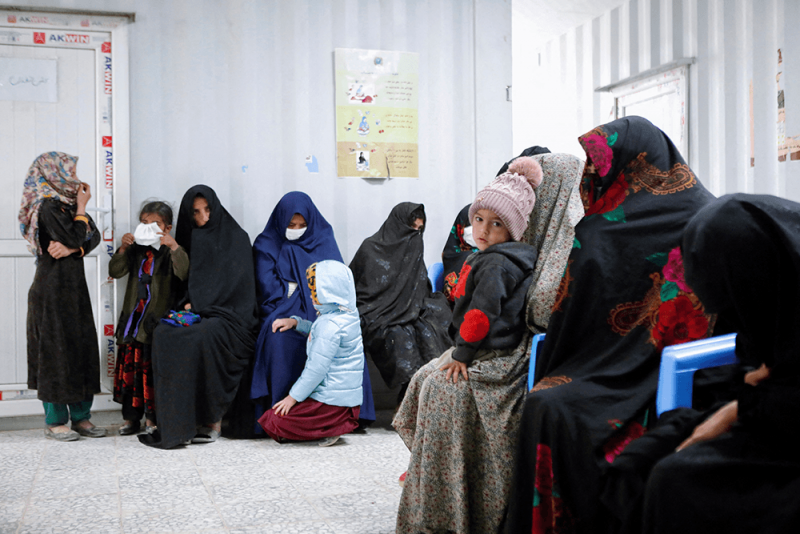
For example, CWS — a relief agency that works with 37 Christian denominations to address hunger, poverty, disaster relief, and displacement — worked alongside Catholic Relief Services and the Republican administration of President Dwight D. Eisenhower to develop the Agricultural Trade Development and Assistance Act of 1954, commonly known as PL–480 or “Food for Peace.”
“In the wake of World War II, CWS saw that hunger was a great need in the country and globally,” said Santos. As the organization connected with farmers, federal agencies and other parts of the food and value chain, they realized that working together they could make a greater impact than if they sought to address hunger issues alone.
Food for Peace not only established a broad basis for U.S. food distribution and aid, but is celebrated as an example of how public-private partnerships can be an effective tool for reducing poverty and hunger while reducing costs, Santos said.
Tom Crick, project adviser of the Carter Center’s Conflict Resolution Program, told Sojourners via email that this kind of development assistance not only saves lives, but builds stability and positive relationships, supporting economic and political priorities for various U.S. administrations.
“Faith-based humanitarian organizations may differ in doctrine or politics, but they share a common calling to service and alleviate suffering,” said Crick, who oversees the Carter Center’s Faith Forward Democracyinitiative, a nonpartisan, multifaith network of faith leaders concerned about how political divisions can negatively impact communities, families, and democracy.
“Government funding has allowed many to do this at greater scale, accepting the full fiscal oversight of government,” Crick said. “Such faith-based organizations apply to win government contracts to provide services, and so are full partners in implementation of government programs based on shared values of service and humanitarian assistance.”
Moreover, Santos said, they bring added value to the work the government is already doing — or is not able to on its own.
“Organizations like ours don’t just receive money, we bring value — opening the door to local communities, bringing our own private dollars, and amplifying the work the government would do on its own,” he said.
That value-added aspect of partnerships between the federal government and faith-based nonprofits is often forgotten or neglected in public debate around such funding, Santos said. “In the current environment, you can conjecture anything and not ground claims in facts,” he said, “but what people don’t understand is that these kinds of partnerships are not only normal, they are part of how the U.S. has been a global catalyst for good and created a multiplier effect for stability and support in communities across the globe.”
Conflicted conservatives
For decades, Christian conservatives have had a conflicted relationship with the idea of government funding flowing to faith-based nonprofits and international non-governmental organizations.
On the one hand, conservatives have generally been opposed to the targeting of religious institutions or religious actors by government institutions, feeling the government has no right to infringe upon religious freedom and the free exercise thereof. To that end, they have fought for federal funding to underwrite the work of conservative Christian colleges with restrictive, anti-LGBTQ+ policies such as Liberty University, which received $19.5 million in federal funding in 2022.
On the other hand, conservative Christians sometimes oppose government funding for nonprofits based on activities they oppose. For example, when it comes to funding Planned Parenthood, groups such as Christian Coalition of America or The Gospel Coalition have supported efforts to block federal funding for the reproductive health organization.
Their support for blocking funding for certain programs and groups has also extended to some Christian nonprofits. In recent years, conservative Christians have targeted other faith groups over issues such as immigration, sexuality, and diversity, equity, and inclusion programs — like Texas Attorney General Ken Paxton targeting Catholic charities providing services to migrants or Sen. Chuck Grassley (R-Iowa) targeting the Christian charity World Vision.
Under Republican president George W. Bush — and thanks to the establishment of the Office of Faith-Based and Community Initiatives in 2001 — grants to faith-based organizations, many of them Christian, grew 21% between 2003 and 2005, reaching $2.2 billion.
More recently, in a written response to Flynn’s and Musk’s attacks, the Lutheran Church Missouri Synod President Matthew C. Harrison defended Christians, “who act in the civil realm according to their Christian consciences as good citizens.”
250220-fedfunding2.png

At the same time, he distanced his church body from organizations like Global Refuge, saying the LCMS did not “invite or support illegal immigration” and critiquing what Harrison called the U.S. government’s preoccupation “with LGBTQ issues” and “DEI philosophy,” which he said had “pervaded nearly every aspect of government activity … beyond all ethical and rational propriety.”
Harrison further critiqued what he saw as Global Refuge’s secularization and the hiring of its current president and CEO, Krish O'Mara Vignarajah, who is Hindu and married to a Catholic. The LCMS has not provided funding to Global Refuge since 2019, when Vignarajah was appointed.
Harrison added he is “personally pleased” with DOGE’s efforts to slash government funding. Though he denounced Flynn’s post as “muckraking,” he supported calls for “a review” of service organizations on Flynn’s list that the LCMS recognizes and supports.
For their part, Global Refuge condemned “the false accusations lodged against our humanitarian work” in a public statement on Feb. 2. They also said that they remained “rooted” in their “proud Lutheran heritage”; they would continue their work “to assist the new administration in welcoming families who need to resettle in our country, helping ensure they learn our language, secure jobs that help our economy grow, and quickly become vital contributors to communities.”
And on Feb. 3, Alesia Frerichs, president and CEO of Lutheran Services in America, issued a statement reiterating their network’s “long-standing Lutheran faith-based tradition of service in caring for our neighbor,” and efforts to strengthen families, support older adults, champion meaningful lives for people with disabilities, and foster stability for veterans and other vulnerable populations.
Three organizations that resettle refugees in the U.S. in partnership with the federal government — Church World Service, HIAS, and Lutheran Community Services Northwest — are part of a lawsuit challenging Donald Trump’s executive order that suspended the U.S. refugee resettlement program (USRAP) and withholds funding for those groups.
The complaint argues that the suspension of USRAP, including its chaotic implementation by federal agencies, is unlawful, violating Congress’ authority to make immigration laws, and that the State Department’s stop-work orders violate basic regulatory requirements.
Squires said while he is disappointed that his denomination’s president, Harrison, would repeat some of Flynn and Musk’s allegations — and not provide effective guidance for congregations like his in the face of deportation raids and other threats to migrant communities — he remains undeterred in his support of refugee resettlement, poverty alleviation, and other community programs run by faith-based organizations with federal funding.
“There’s a lot of noise,” Squires said, “But on the ground, Christians are going to continue to welcome the stranger and care for the vulnerable.”
Got something to say about what you're reading? We value your feedback!
